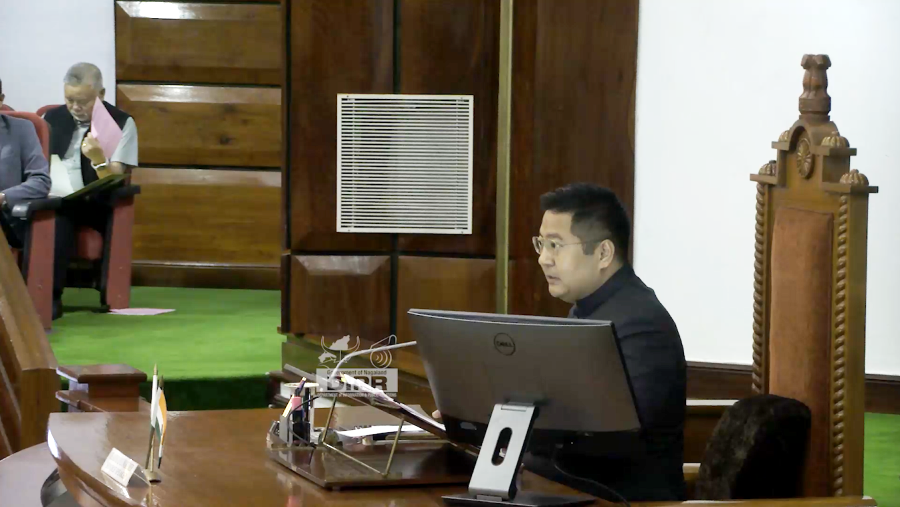The NLA has deferred discussion on the prohibition of satanic worship in Nagaland citing procedural rules, following concerns over publicity and further investigation.
Share

KOHIMA — The Nagaland Legislative Assembly (NLA) on Tuesday deferred a discussion on the matter of “Prohibition of Satanic Worship in Nagaland,” after Speaker Sharingain Longkumer announced that it would be taken up at a later date.
Citing Rules 312 and 313 of the Rules of Procedure and Conduct of Business, the Speaker informed the House that a communication had been received from MLA Kuzholuzo Nienu, who had sought to raise the issue under Rule 54, which allows members to call the attention of a minister to matters of urgent public importance. He said the matter would be deferred “until further listing.”
Speaking to the media outside the session, Nienu, leader of the Naga People’s Front (NPF) Legislature Party, described the issue as significant and pointed out that it had been raised several times since 2022 by the Jehovah Sabaoth International Ministry. He said he had advised the group to reach out to all legislators to highlight their concerns before it was eventually brought to the Chief Minister, who referred it to the Speaker.
More from 7th NLA sessions: Centre urged to review enforcement of Protected Area Permit in Nagaland—CM Rio
CM Neiphiu Rio launches handbook ‘A guide to better health’
Nienu said Nagaland, known as “Nagaland for Christ,” should not allow such practices to grow, alleging that Satanic worship was “spreading like wildfire” in the state. He argued that it was inconsistent with Christian values and involved practices such as violence, theft, immorality, and drug abuse.
The legislator also revealed that the Nagaland Joint Christian Forum (NJCF) had expressed appreciation for his efforts but later issued a letter advising against discussion in the Assembly, fearing it could give undue publicity to the issue. While the NJCF called for a ban, it discouraged debate in the House.
Nienu, however, questioned how action could be formulated without discussion. “If they want the government to take some action without discussion, how can we formulate an action, isn’t it?” he said.
He added that, following advice from the Speaker and Chief Minister, he agreed to defer the matter for further investigation and research before being brought up again at “an appropriate time.”
Citing examples from other states, Nienu said eight states, including Bihar, Chhattisgarh, Jharkhand, Maharashtra, Karnataka, Rajasthan, Odisha, and Assam, had enacted laws or ordinances against such practices. He argued that Nagaland, as a Christian-majority state, should do the same.
Nienu maintained that identifying such practices should be the responsibility of churches, while the government must acknowledge their presence and act accordingly. He said the most affected districts in Nagaland included Dimapur, Kohima, Kiphire, Wokha, and Mokokchung.